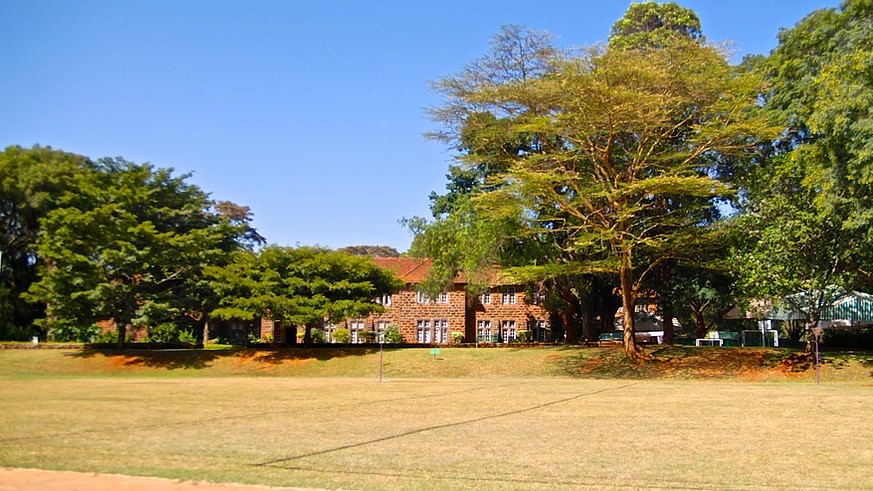Kenton College Preparatory School, nestled in the serene suburb of Kileleshwa, Nairobi, stands as one of the premier international schools in Kenya, offering a world-class education rooted in the British curriculum in Kenya. Established in 1924, this co-educational institution has a rich history and a reputation for academic excellence, making it a top choice for families seeking quality education for children aged 6 to 13. With its lush 35-acre campus, diverse community, and well-balanced curriculum, Kenton College is a beacon for parents navigating the landscape of Nairobi international schools. This article provides a comprehensive guide to the admission requirements at Kenton College, covering entry points, application processes, fees, curricula, extracurriculars, and tips for expatriate families.
Overview of Kenton College Preparatory School
Kenton College is a member of the Independent Association of Preparatory Schools (IAPS), placing it among the top 500 preparatory schools globally. It caters to a cosmopolitan mix of students, with approximately 28 nationalities represented, including a significant proportion of British expatriates and Kenyan nationals. The school’s philosophy emphasizes fostering values such as honesty, courage, respect, and consideration, ensuring students thrive academically, socially, and culturally. For parents searching for British curriculum Kenya schools or Nairobi IB schools with a preparatory focus, Kenton offers a robust foundation that prepares students for top secondary schools in Kenya and abroad, such as Peponi, Hillcrest, Marlborough, and Wellington College.
Admission Requirements at Kenton College
The admission process at Kenton College is structured to ensure a good fit between the school and prospective students. Below is a detailed breakdown of the requirements and steps involved, tailored for families exploring international schools in Kenya.
Step 1: Determine the Entry Point
Kenton College accepts students from Year 2 to Year 8, corresponding to ages 6 to 13. The first step is to identify the appropriate entry point based on the child’s age and date of birth. The school provides clear age bands for each year group, as outlined below:
- Year 2 Entry:
- September 2024: Born between 1st September 2017 and 31st August 2018 (Age 6/7)
- September 2025: Born between 1st September 2018 and 31st August 2019
- September 2026: Born between 1st September 2019 and 31st August 2020
- September 2027: Born between 1st September 2020 and 31st August 2021
- September 2028: Born between 1st September 2021 and 31st August 2022
- September 2029: Born between 1st September 2022 and 31st August 2023
- Year 3-8 Entry:
- Year 3: Born between 1st September 2015 and 31st August 2016 (Age 6/7)
- Year 4: Born between 1st September 2014 and 31st August 2015 (Age 7/8)
- Year 5: Born between 1st September 2013 and 31st August 2014 (Age 8/9)
- Year 6: Born between 1st September 2012 and 31st August 2013 (Age 9/10)
- Year 7: Born between 1st September 2011 and 31st August 2012 (Age 10/11)
- Year 8: Born between 1st September 2010 and 31st August 2011 (Age 11/12)
Parents must confirm the availability of places in the desired year group by contacting the Registrar at registrar@kenton.ac.ke.
Step 2: Submit Initial Information
To initiate the admission process, parents are required to provide the following details to the Registrar:
- Full names, date of birth, and gender of the child
- Nationality
- Details of the child’s current school
- Names and contact details of the parents (including email addresses and phone numbers)
- Information about any previous applications, including those for siblings
- A request for a parents-only meeting with the Headteacher, Ms. Weston, which includes a tour of the school
This initial step allows the school to assess whether a suitable place is available and sets the stage for a personalized admissions process.
Step 3: Parents-Only Meeting and Registration
After submitting the initial details, parents must schedule a meeting with the Headteacher. This meeting is a critical part of the process, as it provides an opportunity to discuss the child’s needs and explore the school’s facilities. During the meeting, parents receive a Registration Form, which must be completed and returned before the assessment date, accompanied by a non-refundable registration fee of KSh 15,000, payable to Kenton College Trust. A copy of the child’s passport is also required.
Step 4: Assessment Process
Kenton College conducts assessments to ensure that prospective students can thrive in its academic and social environment. The timing of assessments varies depending on the entry point and sibling status:
- Year 2 Assessments:
- Sibling assessments: Held in October/November prior to the year of entry
- Non-sibling assessments: Held in January prior to the September year of entry
- Year 3-8 Assessments:
- Conducted on a rolling basis, depending on availability and the child’s readiness
For students with English as a Second Language (ESL), an assessment of language needs is conducted. The school notes that children typically acquire a new language within three to six months of immersion, and ESL support is provided to facilitate integration.
Step 5: Acceptance and Fees
Upon successful completion of the assessment, the Headteacher communicates the outcome to the parents. If accepted, parents must pay a non-refundable admission fee of KSh 150,000 and sign the Parent Contract to secure the child’s place. This step finalizes the admission process, ensuring the child is enrolled in one of the leading international schools in Kenya.
Curriculum at Kenton College
Kenton College follows a well-balanced curriculum based on the British curriculum in Kenya, with adaptations to reflect its African context. The school is structured into two parts: Junior School (Years 2-4) and Senior School (Years 5-8). The curriculum is designed to prepare students for the 13+ Common Entrance exams and scholarships to top secondary schools in Kenya and abroad.
Key Features of the Curriculum
- Core Subjects: English, Mathematics, Science, and ICT/Computing are taught across all year groups, with a focus on practical application and critical thinking.
- Languages: French is compulsory from Year 4, with Kiswahili introduced in Year 2. From Year 6, students can opt for Latin (following the ISEB Latin Syllabus) or continue with Kiswahili. Spanish and German are also offered.
- Creative Arts: Drama, music, and art are integral, with dedicated facilities including three art rooms, a music gallery, and a stage with full theatre lighting and sound systems.
- Technology Integration: Each junior pupil is provided with an iPad for personal use (kept at school), enhancing learning through interactive tools.
- SEN Support: Students with special educational needs receive one-to-one tuition from specialist teachers, integrated into the mainstream timetable. A current educational psychologist’s report is required to establish need.
The school’s curriculum is delivered through nine 30-minute periods each morning, ensuring a structured yet dynamic learning experience. This approach aligns with the high standards of Nairobi IB schools and other international institutions, making Kenton a standout choice for parents seeking academic rigor.
Fees Structure for 2025/2026
Understanding the financial commitment is crucial for families considering international schools in Kenya. For the 2025/2026 academic year, Kenton College’s fees are as follows:
- Termly Fees: KSh 640,500 per term (three terms per year)
- Registration Fee: KSh 15,000 (non-refundable, payable upon submission of the Registration Form)
- Admission Fee: KSh 150,000 (non-refundable, payable upon acceptance)
- Total Annual Cost: Approximately KSh 1,921,500 (excluding the one-time admission fee of KSh 150,000, totaling KSh 2,071,500 for the first year)
Fees are subject to marginal increases at the start of each academic year and are due at the beginning of each term. Compared to other Nairobi international schools, such as the International School of Kenya (ISK), where annual fees can reach KSh 2,900,000, Kenton offers a competitive option for a British curriculum Kenya education.
Extracurricular Activities
Kenton College emphasizes a holistic education, with extracurricular activities playing a vital role in developing well-rounded students. The school’s 35-acre campus boasts state-of-the-art facilities, including:
- Sports: An 8-lane 25m swimming pool, a full-size synthetic grass pitch, and grounds for rugby, rounders, cricket, netball, hockey, and football.
- Creative Arts: Opportunities in choir, orchestra, drama club, and art, supported by dedicated facilities like the Davies Music Gallery and a professional-grade stage.
- Field Trips: Junior students (Years 2-4) visit the National Museum of Kenya, Kenya Railway Museum, and Karura Forest. Senior students (Years 5-8) participate in the Wider Horizons programme, including climbing Mt. Kenya.
- Clubs and Societies: Junior and senior activity groups foster leadership, teamwork, and creativity.
These activities complement the academic curriculum, ensuring students develop skills that prepare them for global challenges, a hallmark of top international schools in Kenya.
Expat Guide to Kenton College
For expatriate families relocating to Nairobi, choosing the right school is a critical decision. Kenton College is a popular choice among expats due to its diverse community, high academic standards, and proximity to Nairobi’s cosmopolitan areas. Here are some tips for expat families considering Kenton:
- Location and Accessibility: Located on Gichugu Road in Kileleshwa, Kenton is just 5 km from Nairobi’s city center, making it accessible despite the city’s notorious traffic. Expats are advised to live in nearby suburbs like Lavington or Westlands to minimize commute times.
- Cultural Integration: With 28 nationalities represented, Kenton fosters an inclusive environment. ESL support ensures non-English-speaking students integrate smoothly, typically acquiring fluency within 3-6 months.
- Transition to Secondary Schools: Approximately two-thirds of Kenton graduates continue their education in Kenya at schools like Peponi or Hillcrest, while others secure scholarships to prestigious UK institutions like Marlborough and Wellington College.
- Expat Community: Nairobi’s growing expatriate community, bolstered by Kenya’s status as East Africa’s economic hub, makes Kenton an attractive option for families seeking a British curriculum in Kenya with a global outlook.
Parents should contact the Registrar early, as places are competitive, and assessments for Year 2 are scheduled well in advance. The school’s welcoming atmosphere and focus on values make it an ideal choice for expat children transitioning to life in Kenya.
Why Choose Kenton College?
Kenton College stands out among Nairobi international schools for its century-long legacy, diverse community, and commitment to holistic education. Its adherence to the British curriculum in Kenya, combined with modern facilities and a supportive environment, ensures students are well-prepared for secondary education and beyond. The school’s emphasis on manners, values, and extracurricular opportunities creates confident, well-rounded individuals ready to excel in a globalized world.
For families seeking a premier preparatory education in Kenya, Kenton College offers a compelling blend of tradition and innovation. To begin the admission process, contact the Registrar at registrar@kenton.ac.ke to schedule a meeting with the Headteacher and take the first step toward securing a place at this esteemed institution.




